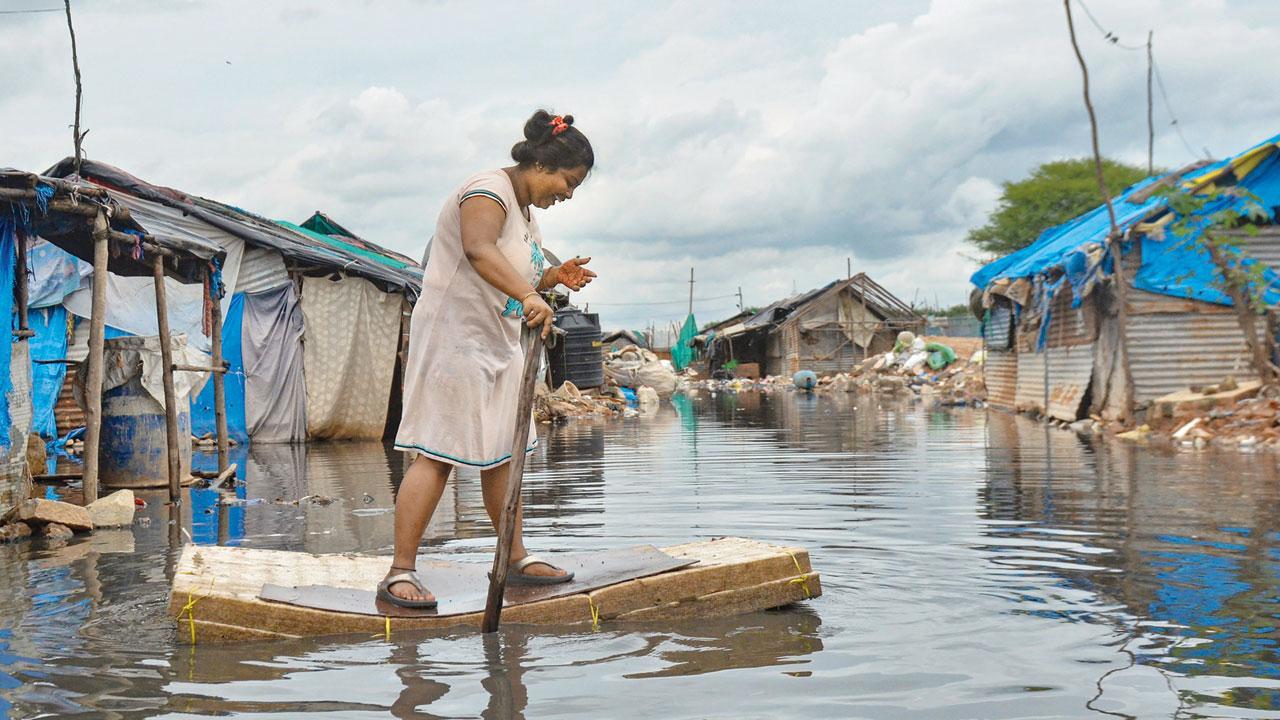Home / News / India News / Article /
Bengaluru drowned, then why are lakes not full, asks experts
Updated On: 12 September, 2022 09:27 AM IST | Bengaluru | Agencies
Environmentalists and experts allege that land sharks have turned feeder canals, which empty rainwater into lakes, into sewage drains

A woman uses a makeshift raft to cross the waterlogged Munnekolala slum, in Bengaluru. Pic/PTI
The torrential rain in the city that flooded the houses and offices of tech honchos and turned roads into rivers of sorts could not fill most lakes, thanks to the land mafia who turned the feeder canals of these water bodies into a sewage drain and diverted their flow, environmentalists said. Benglauru, which the British rulers had called a ‘city of thousand lakes’ for having over 1,600, has about 400 water bodies today in the Bengaluru metropolitan region.
This mischief by the land sharks in connivance with some vested interests in various civic agencies and in the government led to the death of lakes in the city, Leo Saldanha, coordinator of Environment Support Group alleged. “The lakes that disappeared gave way for residential layouts, bus stands, bus terminals and tech parks. Sadly, those 400 lakes are also on the verge of destruction.”



